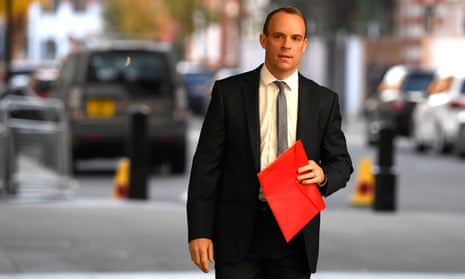Britain’s withdrawal from the European Union is often compared to a divorce: it is painful, expensive and involves breaking up a relationship built without expectation of separation. If one party is determined to do it, the other must go along with it, albeit reluctantly. Even in a unilateral decision there are two sides.
Yet the European response to UK choices has been consistently neglected in Westminster. The Conservative party argued about Britain’s future relationship with the EU as if it could be settled within the cabinet. Labour has acted as if the problem with Brexit is the fact of it being implemented by Tories. The past week has dashed any hope that the motives of EU leaders might be considered more salient once a deal was struck. Faced with Theresa May’s draft withdrawal agreement, some Tory MPs have demanded that she return to Brussels and come back with a different one. Others say she must stand down so someone else can do the job. Labour’s solution is a general election, resulting in Jeremy Corbyn becoming prime minister and conjuring up a Brexit that does everything the one now on offer fails to achieve.
Continental leaders say Mrs May’s deal is what a negotiated Brexit looks like, given where she started. There are 27 other heads of government involved and not all of them are entirely happy with what was agreed. If a UK prime minister tries to unpick the deal, other nations might want a second bite. The idea that Mrs May lacked the will to get more concessions, asserted by Dominic Raab, former Brexit secretary, is infantile and irresponsible. The deal’s flaws express the impossibility of retaining the privileges of European integration from behind red lines that necessarily sever the UK from the continent.
Mr Raab is positioning himself as a replacement for the prime minister. So is his predecessor, David Davis. It is hard to think of less suitable candidates, although that is a competitive field in the Conservative party. Two men who ran the Brexit department cannot credibly argue that the deal’s shortcomings can be fixed by yet more application of their supposed negotiating prowess. The leavers who have chosen to stay in government, unofficially led by Michael Gove, are no better. They want exemption from collective cabinet responsibility, to half-support Mrs May while undermining her with demands for an upgrade to the deal they nominally agreed to endorse last week.
The prime minister has at least understood that a squandering of time and goodwill have limited the UK’s options. She says there are three: her deal, no deal, or no Brexit. Some MPs who voted remain envisage a fourth: parking Britain in an outer tier of existing European architecture for non-EU members, namely the European Economic Area and the European Free Trade Association. A deal along those lines might well win a majority in the Commons, although keeping free movement of labour as a condition of single market membership would be politically problematic for all. Would it fly in Brussels? It is hard to know when no one is making the request explicit.
Mrs May’s stated trio of outcomes result from one set of political and parliamentary paths. If MPs want to take a different road then they need to spell their ideas out, with parliament allowed to reassert control over the process and render alternatives plausible. Since before the referendum was even held, there has been far too much reliance on dream scenarios and not enough setting out of options based on realistic appraisal of the situation on both sides of the Channel. Pedlars of delusional fantasy took Britain into this dangerous mess. Their voices can be discounted when evaluating routes to safety.
